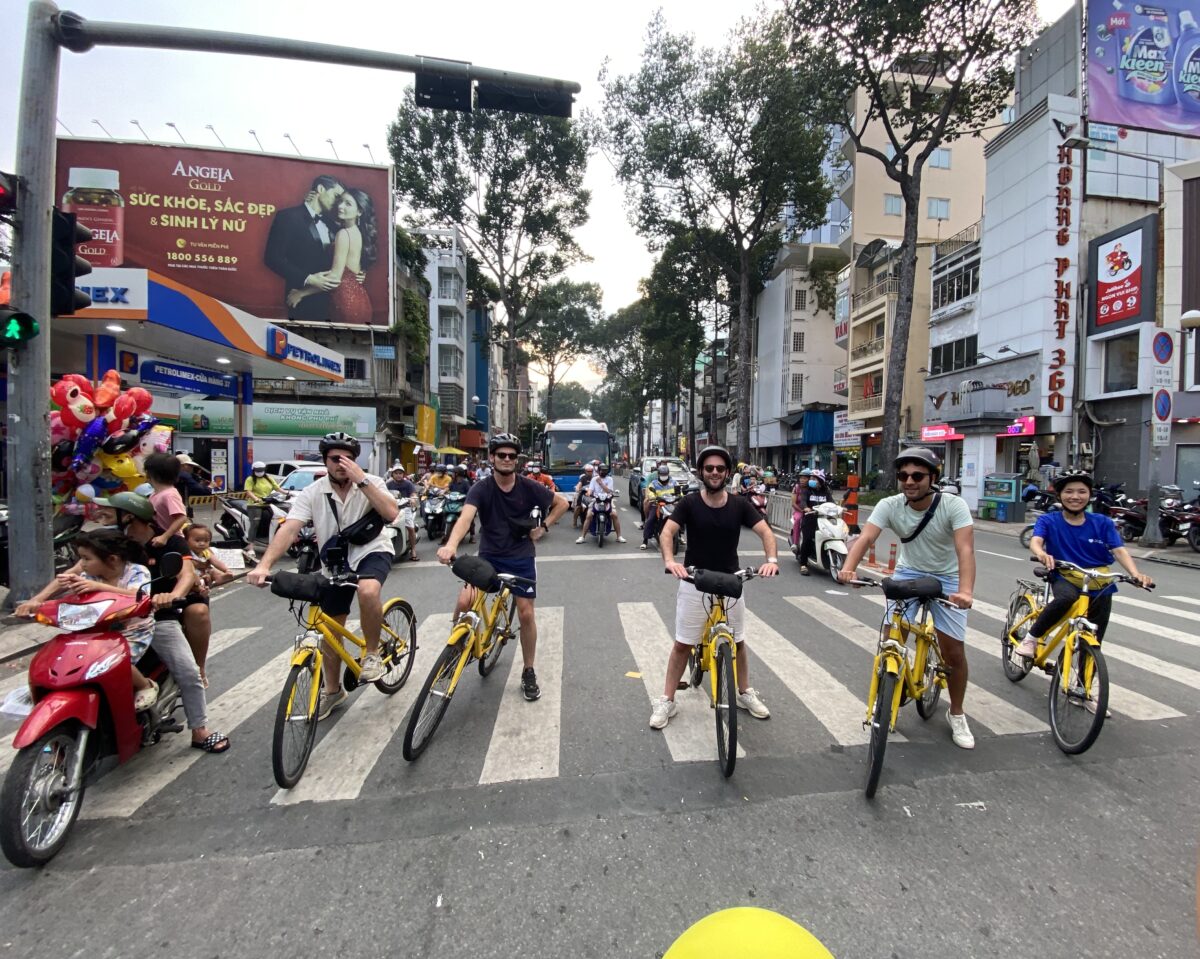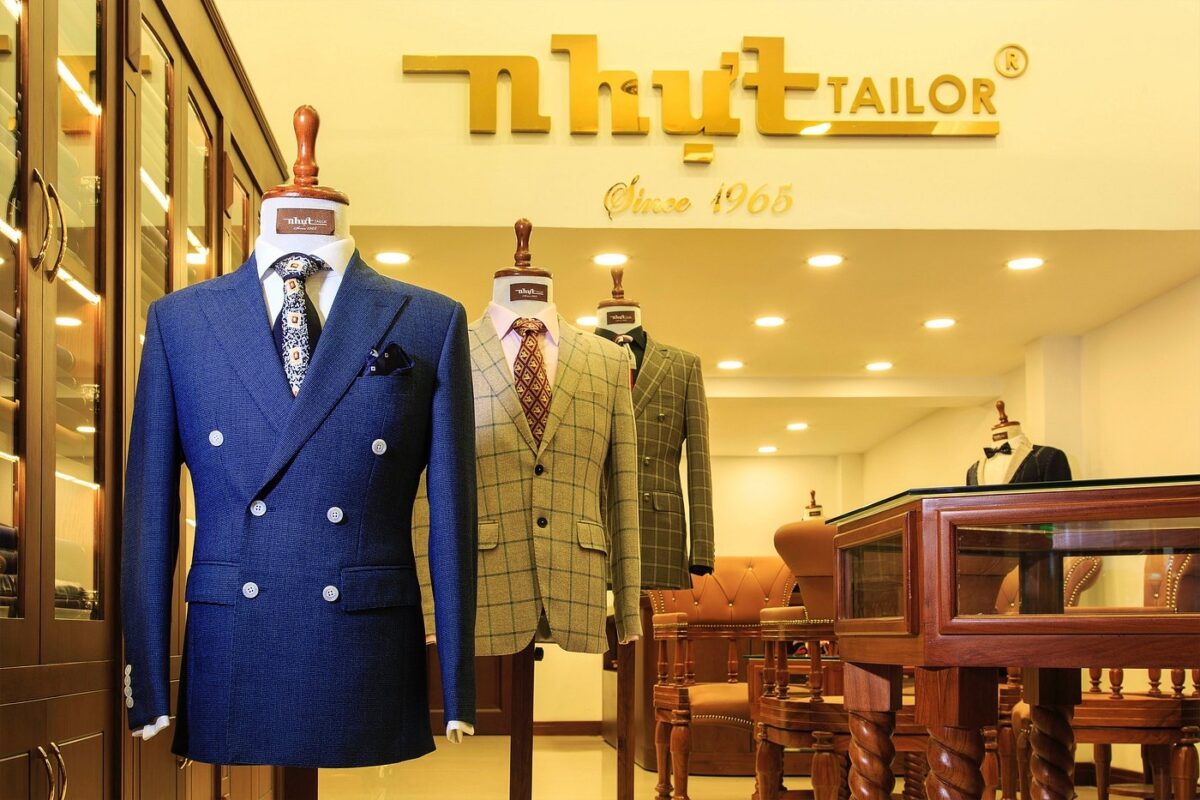Vietnam offers a variety of transportation options for travelers. Getting to Vietnam is convenient with well-connected international airports and efficiently connected land border crossings. Once in Vietnam, you can explore the country using domestic flights, electronic buses, trains, or even by riding a motorbike. Moving within cities becomes easy with the presence of taxi services and public buses, providing convenient and affordable options for commuting. Join Jackfruit Adventure in exploring everything about Transportation in Vietnamin this article.
Varieties of transportation in Vietnam
In Vietnam, there is a diverse array of transportation options tailored to different travel preferences:
- Planes: Vietnam boasts a well-established domestic flight network, with multiple carriers offering regular services between cities and provinces.
- Trains: The Vietnam railways system connects coastal cities, providing train routes from Ho Chi Minh City to Hanoi.
- Buses: Public transport, including long-distance bus travel, is a popular and affordable means of navigating Vietnam. Buses link major towns and cities, with sleeper buses offering surprisingly comfortable rides, even accommodating ample legroom when fully reclined. Tourist buses, though pricier, also provide more comfortable options.
- Motorbikes: Traveling by motorbike allows for exploring Vietnam at your own pace, offering a unique way to see more of the country compared to other transportation methods.
- Cars: Car rental services with private drivers are available in most major Vietnamese cities, catering to both intracity and intercity travel.
- Taxis: Metered taxis or private hire taxis are prevalent in urban areas. Negotiating fares is necessary in both types, and ridesharing apps like Grab and Gojek provide additional options for more straightforward pricing.
- Boats: Traveling by boat offers a delightful experience for discovering villages along the Mekong Delta and navigating between islands in destinations like Phu Quoc and Halong Bay.
- By foot: Walking is an excellent way to explore smaller villages, fostering a connection with locals. In urban areas, walking provides an exhilarating experience with intense sights, sounds, and smells.
- Cycling: Exploring Vietnam on two wheels offers travelers an immersive and eco-friendly way to experience the country’s diverse landscapes and vibrant culture. Despite being less favored by locals, cycling provides the freedom to navigate through bustling cities and scenic countryside, offering a unique perspective and memorable adventures along the way.
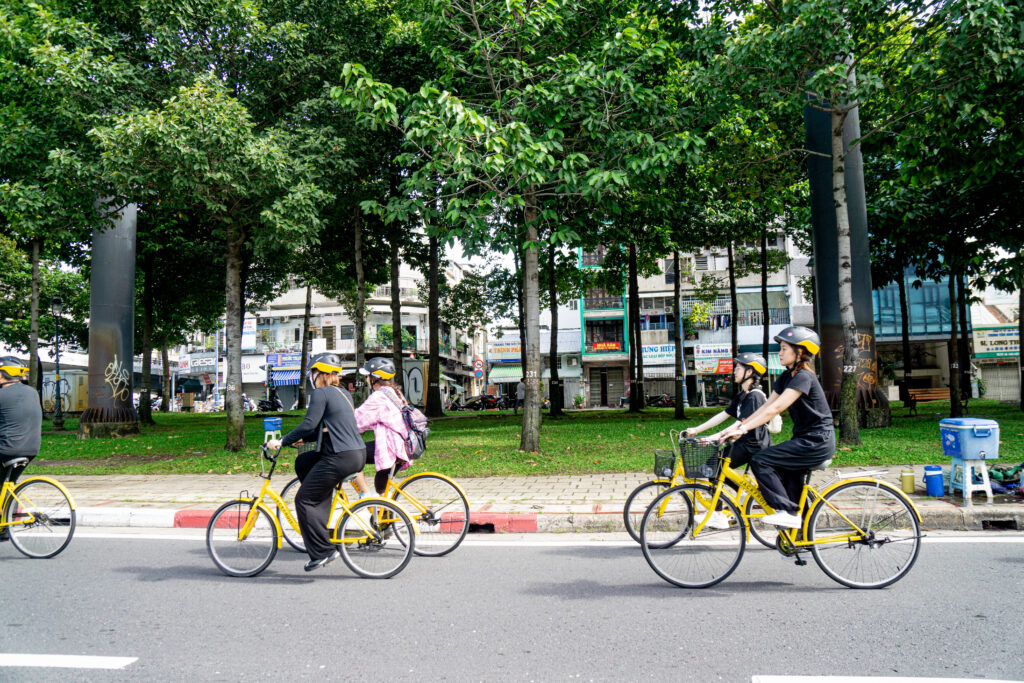
National Airline Transportation in Vietnam – Ideal for Long Distances
Air travel serves as a preferred mode of transportation for longer intercity and international journeys to Vietnam from neighboring countries such as China, Japan, and Cambodia. Booking a flight to various destinations within Vietnam is highly convenient, with multiple daily flights to popular domestic destinations. Many expatriates and locals opt for air travel, especially for weekend getaways.
Best Platforms for Booking Vietnamese Plane Tickets
- Vietnam Airlines: As the sole government-owned airline, Vietnam Airlines offers reliable flights, although it may not always be the most economical option.
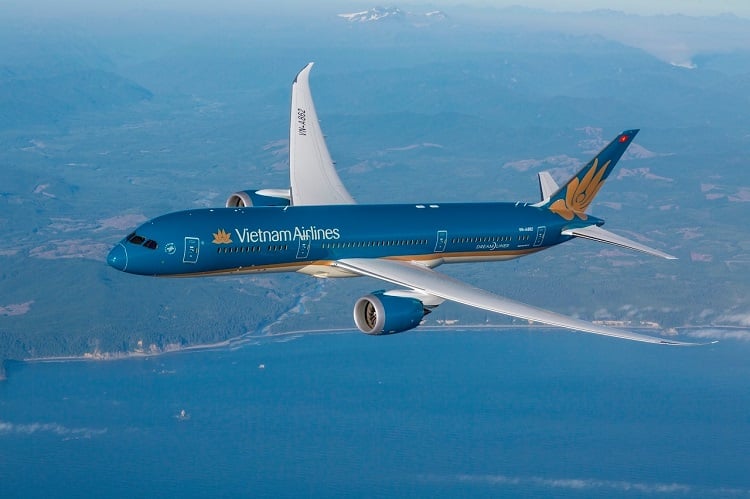
- Vietjet Air: Vietnam’s first low-cost airline, Vietjet, provides affordable flights within Vietnam and to nearby countries.
- Jetstar Pacific: Operating within Vietnam, Jetstar Pacific is a subsidiary of Qantas, one of Australia’s largest airlines.
- Bamboo Airlines: A private national airline, Bamboo Airlines, focuses on providing budget-friendly domestic flights.
Vietnamese Plane Ticket Prices
Traveling domestically by plane is cost-effective, with most routes priced at only $25 for a one-way ticket.
Rules, Etiquette, and Tips for Air Travel in Vietnam
Air travel rules in Vietnam are consistent with global standards. Expect a potentially lengthy wait during border security checks when entering Vietnam from international destinations. Immigration processes can take up to a few hours.
Traveling by Vietnamese Train – Comfortable Transportation with Scenic Views
Train travel is an excellent option for major routes like Hanoi to Ho Chi Minh City and also connects smaller tourist cities like Phan Thiet and Ninh Binh. It proves to be an economical and comfortable choice for covering large distances in Vietnam.
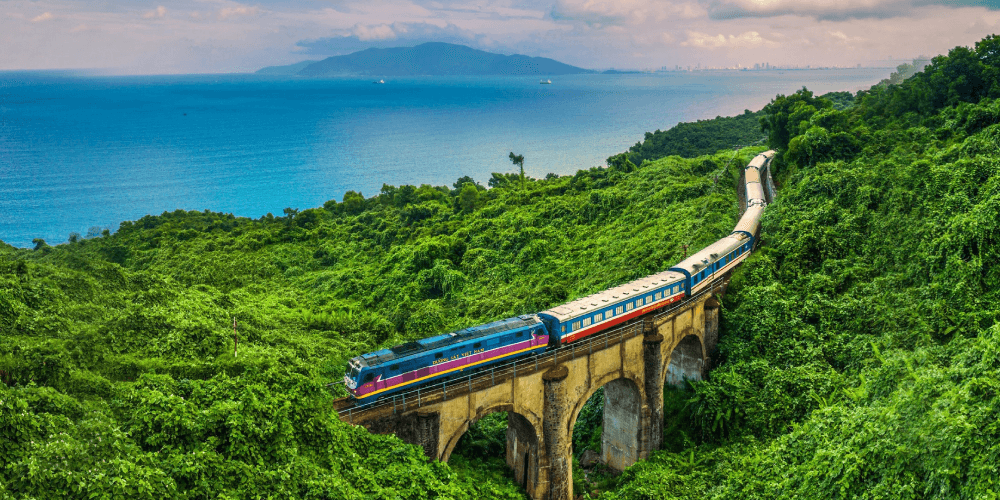
Key Points about Vietnamese Trains:
- The country has approximately 3,000 km of railway tracks, with daily Reunification Express trains running between Saigon train station in Ho Chi Minh City and Hanoi train station.
- Vietnamese trains are generally reliable and comfortable, offering seating in a 2×2 formation with tables. Sleeper cabins with 4 or 6 bunk beds are available, providing a comfortable experience, though earplugs are recommended due to potential noise.
Best Platforms for Booking Vietnamese Train Tickets:
- Bao Lau: An efficient website detailing seat and sleeper-berth availability. It accepts international cards with a commission per ticket and provides e-tickets via email.
- DSVN: The official booking site for domestic train tickets, allowing payment through various methods, including payment gateways, e-wallets, banking apps, or online reservations with cash payment at a train station.
- 12go.Asia: An international provider offering price comparison and online ticketing for various train services in Vietnam.
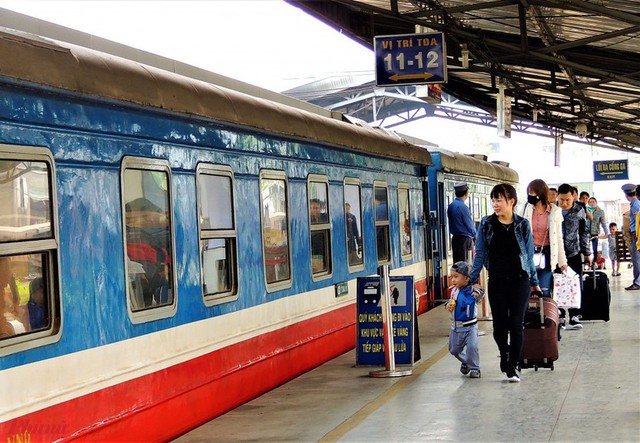
Vietnamese Train Ticket Prices
Train travel over long distances is relatively more expensive than air travel, providing an unforgettable experience over a few days. Prices vary, with the Ho Chi Minh to Hanoi train costing up to $80, while overnight train tickets for shorter journeys, such as Hanoi to Sapa, range from $15 to $30.
Rules, Etiquette, and Tips for Vietnamese Train Travel:
- Food and drinks are allowed onboard, and it’s common to bring your own meals.
- Smoking is prohibited on trains.
- Reserving train tickets in advance is advisable, especially for popular routes and times.
Vietnamese Bus and Coach Transportation – Ideal for City Hopping
In everything about Transportation in Vietnam, buses stand out as a widely used mode of transportation. With a well-established network of highways, national bus services, and various private bus options, traveling by air-conditioned bus provides a relatively comfortable and efficient way to cover long distances quickly. However, it’s crucial to note that the quality of buses and services can vary significantly depending on the company and route.
While taking an air-conditioned bus for long-distance travel is comfortable, using local buses to navigate large cities like Ho Chi Minh City is not recommended. The complicated bus schedules, challenges in locating bus stations, and the absence of air-conditioning can be off-putting. In such cases, opting for a taxi is a much more convenient way to explore the city.
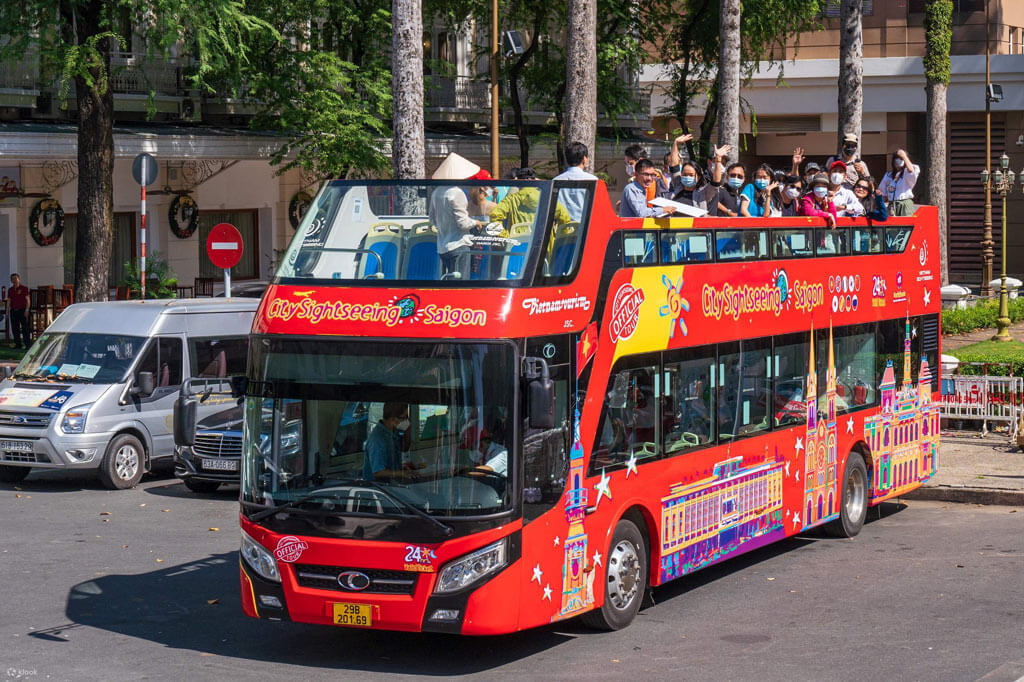
Open tour buses are available in major cities such as Hanoi and Ho Chi Minh City, offering travelers an eye-opening experience as they witness chaotic traffic from a safe distance.
City bus routes are well-established in most Vietnamese cities, providing an extensive network. Navigating these routes might be intimidating, especially for those without proficiency in the Vietnamese language. However, with a bit of courage and a phone equipped with Google Maps, riding the city bus can become a rewarding cultural immersion experience.
Best Vietnamese Bus Companies
- Hoang Long Bus: Operating various routes between Hanoi, Hue, and Danang.
- Sinh Cafe Bus: Providing services on routes connecting Ho Chi Minh City, Cambodia, and Laos.
- Phuong Trang FUTA Bus: Operating routes between Ho Chi Minh City and destinations in the Mekong Delta, as well as other cities in South Vietnam.
- Mai Linh Bus: Recognized as the most popular and reliable bus company in Vietnam.
Vietnamese Bus Ticket Prices
While Vietnamese bus travel is cost-effective, it’s not recommended for extremely long distances. For shorter routes:
The sleeper bus from Ho Chi Minh to Nha Trang (435 km) costs around $20.
The service from Hanoi to Sapa (315 km) is priced at $15.
Vietnamese Bus Etiquette & Tips
When traveling by bus in Vietnam, it’s essential to be aware of local etiquette and customs:
- Take off your shoes when boarding overnight buses and maintain a low voice.
- Keep your personal belongings with you at all times, as thefts can occur on buses.
- Carry small bills and coins for payments to bus drivers or purchases from onboard vendors.
- If you need to disembark, inform the driver in advance and ensure you take all your belongings.
- Drinking alcohol on buses, especially with bus drivers, is illegal in Vietnam.
Travelling By Motorbike In Vietnam – In A Nutshell
Motorbikes, known as ‘xe máy’ in Vietnamese, are prevalent throughout the country. However, it’s advisable to use them for short distances within towns and cities, avoiding highways and fast roads for safety reasons. Personal transportation in rural areas often involves motorcycles or bicycles.
Best Vietnamese Motorcycle Rental Companies
- RentABike: Established company specializing in long-term rentals for expats in Hanoi, Da Nang, and Ho Chi Minh City.
- Tigit Motorbikes: Offices in HCM, Danang, Hanoi, and Dalat, offering a convenient pick-up and drop-off service between cities.
Vietnam Motorcycle Renting Prices
Renting a motorbike in Vietnam typically costs between US$5 to US$20 per day, depending on the bike type and rental duration. Prices for more expensive bikes are negotiable. Rental shops are commonly found in and around backpacker streets in large cities.

Vietnam Motorcycle Tour Packages
Companies like vietnammotorbiketoursclub.com offer motorbike tour packages allowing you to explore Vietnam at your own pace. Tour prices vary based on group size, ranging from $100 to $500 per person per day, inclusive of food and accommodation.
Vietnamese Motorcycle Rules, Etiquette & Tips
- A Vietnamese or international driving permit is required, though enforcement varies.
- Drive on the right and overtake on the left, a rule occasionally broken.
- Be aware of other riders, as creative driving styles are common.
- Helmets are mandatory for drivers and passengers.
- Horns are used for safety, not as a personal gesture.
Vietnamese Gas Pumps – Not Self-Service
Gas station attendants handle fueling. To indicate how much gas you need, state the amount (e.g., “nam muoi” for fifty). No tipping is expected.
Vietnamese Taxis: Cars Vs. Motorbikes
Taxis, available in car and motorbike options, are popular. Apps like Grab, Taxi Mai Linh, and Gojek make booking easy. Airport taxi services are reliable, and prices vary based on distance and type of taxi.

Vietnamese Taxi Prices
- Car: Approximately $0.50 per kilometer.
- Motorbike: Around $0.25 per kilometer.
Choosing Between Car or Motorbike Taxi in Vietnam
Choose based on comfort, privacy, and safety for cars, or opt for motorbikes for a more adventurous experience.
Vietnamese Taxi Rules, Etiquette & Tips
- Agree on the fare before starting the journey if the meter is not used.
- Use apps like Grab for fixed prices.
- Communicate changes in plans in Vietnamese, as English may not be widely understood by taxi drivers.
Other Ways to Get Around in Vietnam
In addition to conventional modes of transportation, Vietnam offers some novelty ways of getting around that you can explore:
Cyclos
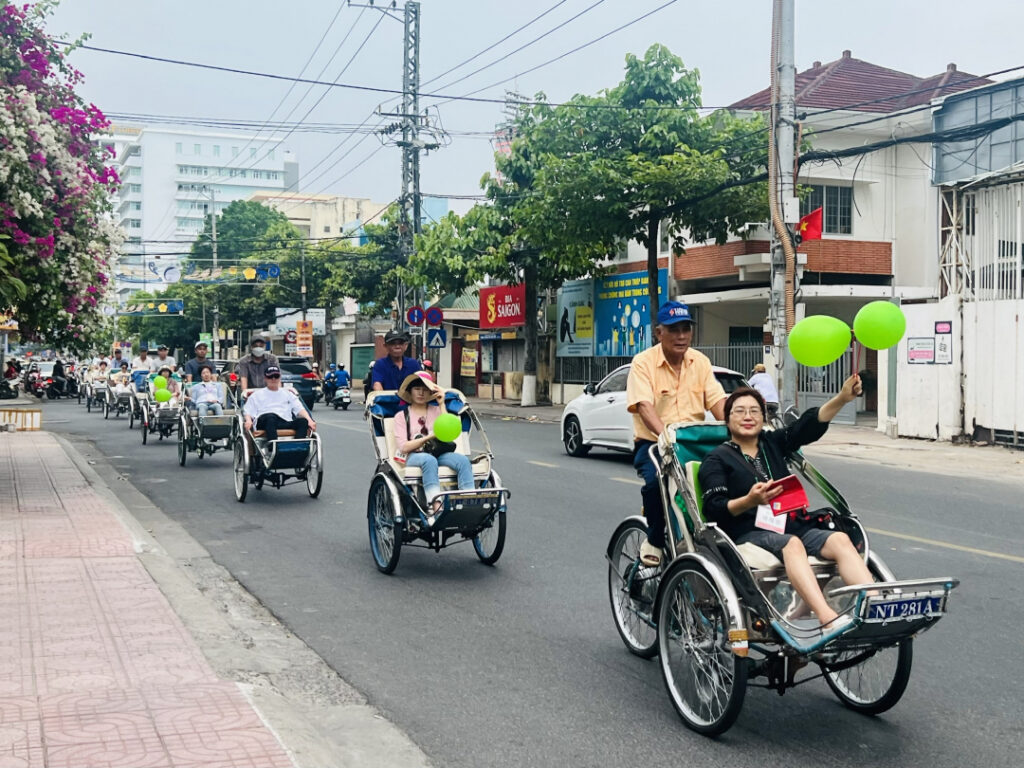
Motorbike taxis are prevalent, but there are novelty versions available too, such as bicycle taxis, pousse-pousse (bicycles pulled by locals), and cyclos (bikes with sidecars push-pedaled by drivers). Hail one down on the street and negotiate a price (around $2 for a short tour). Exploring the cultural town of Hoi An via cyclo can be especially fun and interesting.
Boats
Boat travel is an alternative option, ideal for navigating the Mekong River and other smaller rivers. You can also hire boats for private tours or fishing excursions from travel agencies and locals along the coast for a memorable experience.
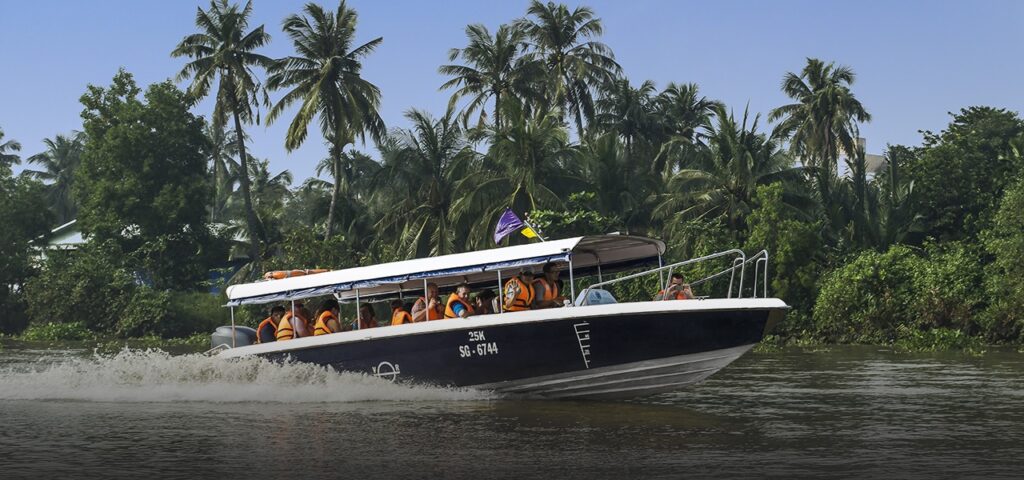
Cycling
While cycling may not be widely embraced by locals in Vietnam, often linked to lower socioeconomic status and students, it offers unique opportunities for sustainable tourism and an authentic experience of the country. Although the streets in Vietnam are commonly perceived as unsafe for cycling due to heavy traffic and a lack of dedicated cycling infrastructure, there are hidden gems in cities such as Hoi An, Hue, Mai Chau, and the flat Mekong Delta region.
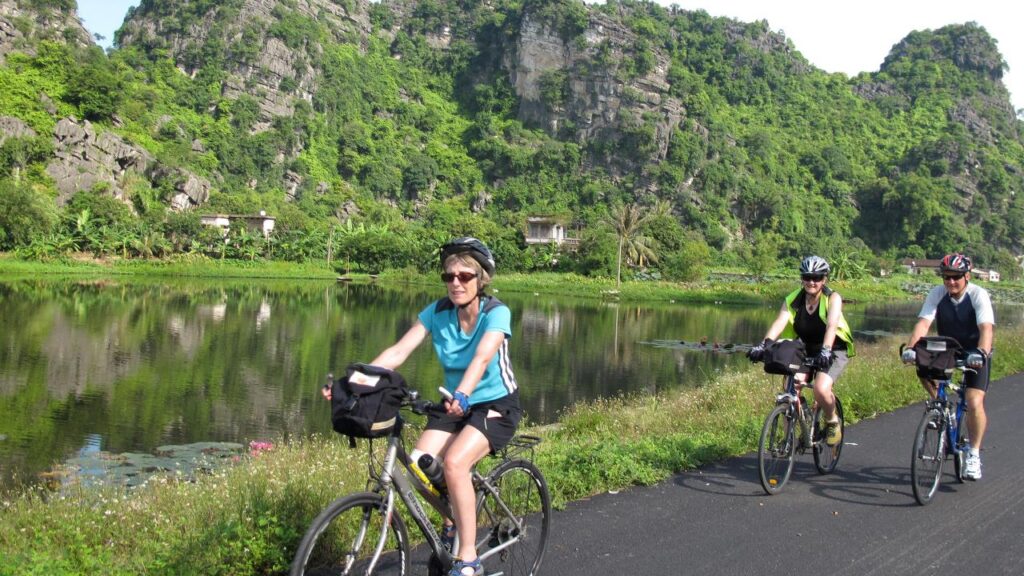
Embarking on a cycling adventure not only provides picturesque routes through the countryside but also aligns with the goal of promoting sustainable tourism. Cyclists can explore charming alleyways and corners, immersing themselves in the true essence of Vietnam. Riding through these less-traveled paths allows visitors to connect with the local culture and witness the daily life of the communities in a way that other modes of transportation may not offer. So, despite initial perceptions, cycling serves as a gateway to discovering the authentic charm of Vietnam, where every turn opens up new and enriching experiences.
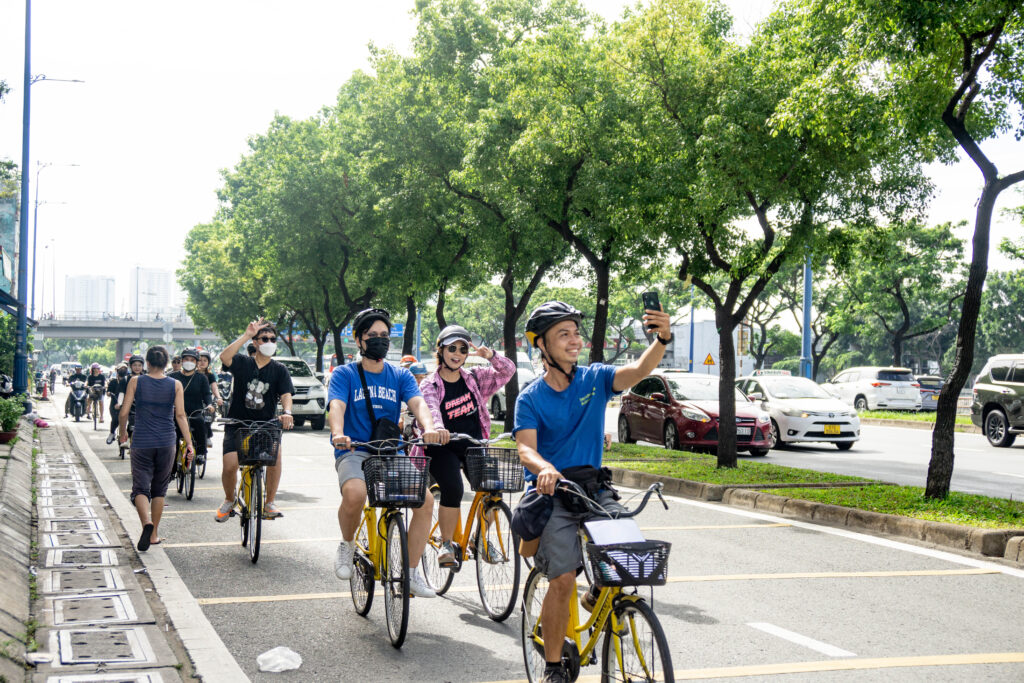
FAQs about Vietnam Transportation
What is the main transportation in Vietnam?
The primary forms of transportation in Vietnam include motorbikes, buses, bicycles, and taxis. Motorbikes are widely used by locals due to their flexibility and ease in navigating busy city streets.
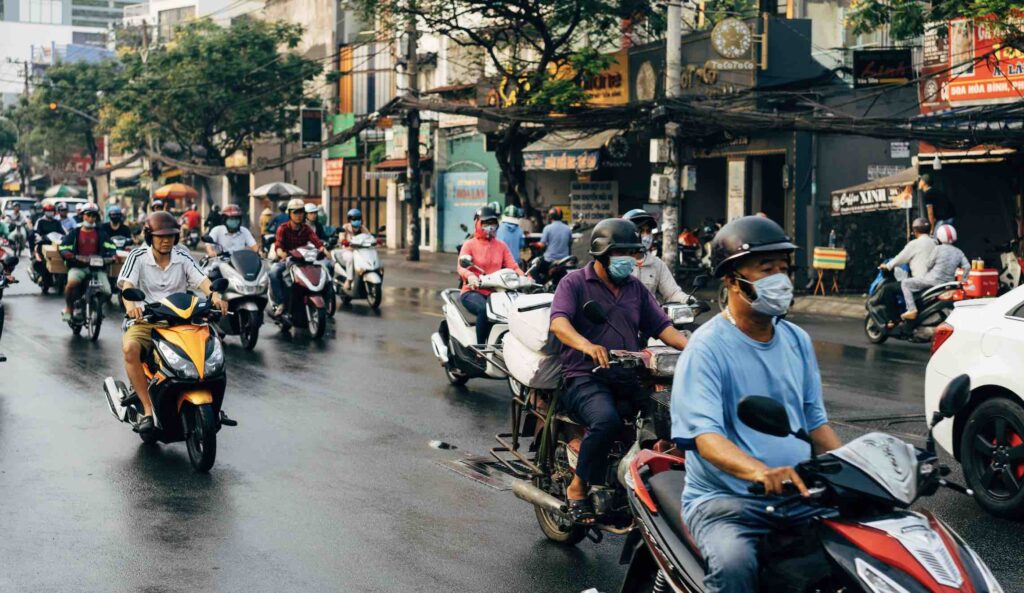
How do tourists get around in Vietnam?
Tourists in Vietnam commonly use taxis, buses, bicycles, and motorbike taxis for short distances. For longer travels between cities, planes or trains are popular choices. Many tourists also opt for guided tours, which provide organized transportation.
Is public transport in Vietnam good?
Public transport in Vietnam, including buses and trains, is affordable and connects major cities and tourist destinations. However, it may not always be the most time-efficient option compared to other modes of transport.
What is the cheapest mode of transport in Vietnam?
Bicycles are generally the cheapest mode of transport in Vietnam, offering an economical way to travel between cities and within urban areas.
Conclusion
As a developing nation with a rapidly growing tourism industry, Vietnam is currently undergoing a massive surge in infrastructure improvement projects. The result is that traveling on land, sea, and air is becoming easier than ever – for both independent travelers and those on organized tours.
If you’re looking to explore everything about Transportation in Vietnam through the sustainable tourism of Vietnam, consider checking out the bike tours offered by Jackfruit Adventure. We provide unique cycling tour Ho Chi Minh journeys that offer a close experience with local culture and breathtaking natural landscapes. We are committed to providing travelers with unforgettable and distinctive experiences at Vietnam’s most beautiful locations. Don’t miss the opportunity to discover the culture and natural beauty of our country through our unique cycling itineraries.
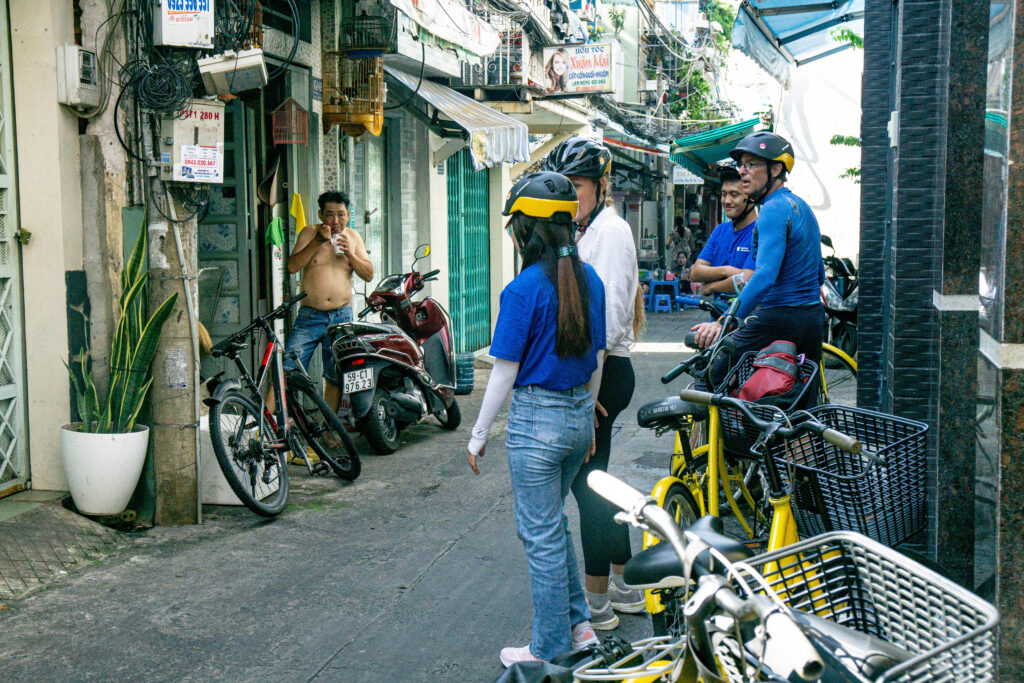
More informations about safe traveling in Vietnam:


